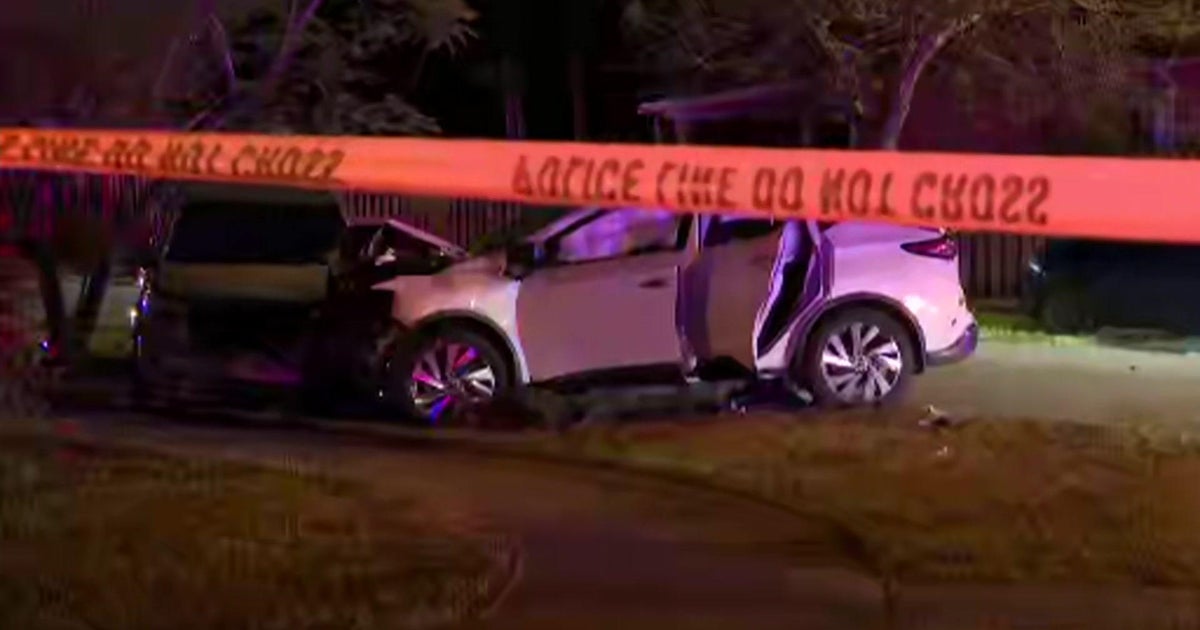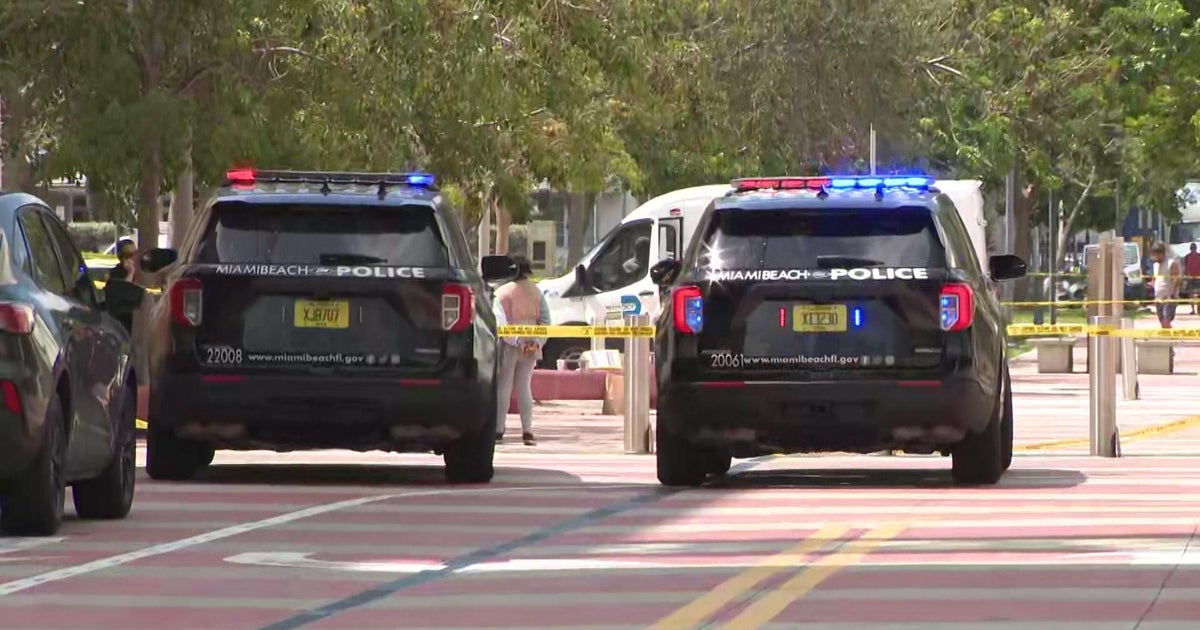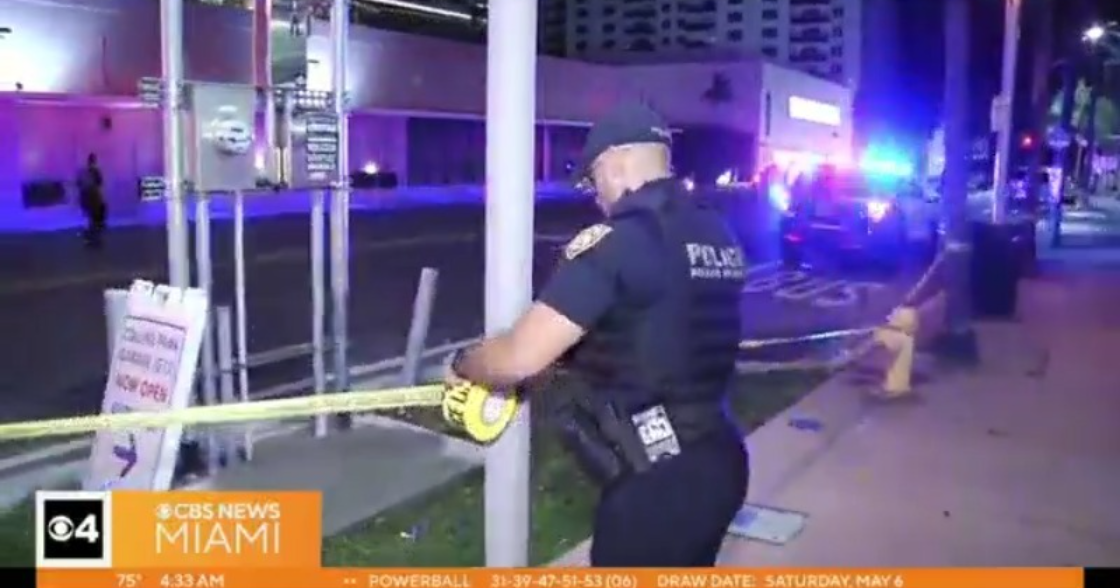Russian Journalist Fakes Death, Turns Up Fine After Reported Fatal Shooting
Follow CBSMIAMI.COM: Facebook | Twitter
MOSCOW (CBSMiami/CNN) – A Russian journalist is alive and well, a shock to many after he was reported to be killed.
The controversial story is causing anger and angst across the globe.
To recap: Russia-watchers received a fresh shock on Tuesday night, when they saw reports that Russian journalist and Kremlin critic Arkady Babchenko had been gunned down in an apparent contract killing.
Ukrainian police reported that an unidentified gunman shot and killed him in the entryway to his apartment in Kiev, an apparent murder that bore the hallmarks of a contract hit, and appeared to be part of a wave of targeted killings in Ukraine directed at opponents of Moscow.
Then Babchenko made a surprise appearance at a press conference Wednesday, very much alive and well.
"I would like to apologize for what you all had to go through ... because I've buried friends and colleagues many times, and I know it's a sickening-vomiting feeling when you have to bury your colleagues. You're sorry that they forced you to experience all this," he said. "But in another way, it was impossible."
In Babchenko's telling, Ukrainian security services had saved his life. They informed him that a hit was ordered on him from Russia, and the money had already been transferred: $40,000 (something Babchenko ironically described as a respectable price on his head).
Ukrainian officials said they had foiled a deadly plot, and that the person suspected of carrying out an attempted assassination attempt on Babchenko was in custody. But despite the surprise ending, the Ukrainians handed a public-relations gift to the Russian government.
"That Babchenko is alive is the best news," Russian Foreign Ministry spokeswoman Maria Zakharova said on Facebook. "Wish it was always like that. It's too bad that in other cases, the masquerade didn't quite come off."
Zakharova said the Ukrainian story had been concocted for "propagandistic effect." Senior Russian lawmaker Konstantin Kosachev compared the Babchenko case to the Salisbury poisonings, something used "by hook or by crook to defame Russia."
And that's likely a point that Russian officials will further amplify. Russia has vehemently denied any responsibility for the poisoning of the Skripals in Salisbury, much as it has denied backing separatists in Ukraine's Donbas region and meddling in the 2016 US presidential election. Earlier Wednesday, before Babchenko's surprise reappearance, Russian Foreign Minister Sergei Lavrov said the West was using the case "to promote Russophobic views and to create an uncomfortable situation for our country in every possible way," state news agency TASS reported.
That response -- accusing the West of stirring a campaign of Russophobia -- has been the default Russian response to everything from the Skripal case to the downing of Malaysia Airlines Flight 17 in eastern Ukraine in 2014. In each case, the Russian government issued furious denials and charged the West with creating "fake news" to blacken Russia's name.
In the case of Babchenko, they can now claim that fake news is real. And others are questioning why the Ukrainians staged Babchenko's death.
"We are relieved that Arkady Babchenko is alive," said Nina Ognianova, the Europe and Central Asia program coordinator for the Committee to Protect Journalists. "Ukrainian authorities must now disclose what necessitated the extreme measure of staging news of the Russian journalist's murder. CPJ is investigating this unprecedented situation and will have no further comment until we have more details."
Babchenko is no stranger to controversy. Last year, he fled Russia, saying he was subject to a campaign of harassment "so personal, so scary," that he was forced to flee his native country.
The main trigger for this wave of harassment? A Facebook post. In December 2016, a Russian plane carrying the Alexandrov Ensemble, a much-loved military choir, crashed into the Black Sea on the way to a performance for Russian troops at a base in Syria. Babchenko said he used the post -- in which he refused to express sympathy for the crash victims -- to remind readers that Russia was also backing the Syrian government in a brutal offensive against the city of Aleppo.
Russians reacted angrily. Prominent lawmakers and state media vilified him, and Babchenko said he no longer felt safe in Russia.
"My home address has also been published on the Internet, together with an invitation 'to visit,'" Babchenko wrote. "I have received threats to me and my family by the thousand -- in my email inbox, on Facebook and by phone."
Babchenko in many respects has had an extraordinary career. Before working as a journalist, he served as a conscript soldier in Russia's 1994-96 war against Chechen separatists. He then returned to military service as a contract soldier during a second war in Chechnya that began in 1999. That second conflict helped propel Russian President Vladimir Putin to the presidency. That conflict also propelled Babchenko's writing career: He published a memoir about his life as a young soldier, One Soldier's War.
But this case has raised serious questions for some about the impact of this hoax on the practice of journalism.
"Babchenko is a journalist, not a policeman ... and part of our job is trust, whatever Trump and Putin say about fake news," said Andrei Soldatov, a Russian journalist and expert on intelligence services, on Twitter. "I'm glad he is alive, but he undermined even further the credibility of journalists and the media."
(© Copyright 2018 CBS Broadcasting Inc. Cable News Network, Inc., a Time Warner Company, contributed to this report)



